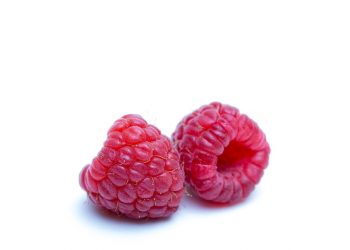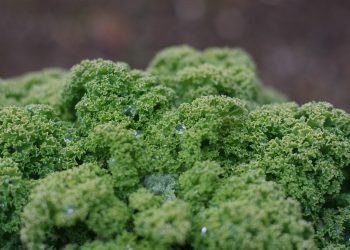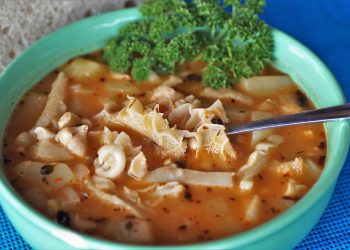Living with PCOS (Polycystic Ovary Syndrome) can feel like a whirlwind of emotions, symptoms, and confusion. But let’s be real: managing it doesn’t have to be a daunting task. The right diet can be a game-changer. You can take charge of your health and feel vibrant, energetic, and empowered. So, let’s dive into seven diet tips for PCOS without supplements that you’ll absolutely love.
Contents
What is PCOS and Why Does Diet Matter?
PCOS is a hormonal disorder that affects people with ovaries, often leading to irregular periods, weight gain, and even fertility issues. It’s more than just a medical condition; it’s a part of your life that deserves your attention and care. And one of the most powerful tools at your disposal? Your diet.
What you put on your plate can play a pivotal role in managing your symptoms. It’s about nurturing your body and creating a lifestyle that supports your well-being. Let’s explore how you can do just that.
1. Embrace Whole Foods
When it comes to diet tips for PCOS, embracing whole foods is non-negotiable. Think about it: your body thrives on nutrients, not processed fillers. Whole foods—like fruits, vegetables, whole grains, and lean proteins—are packed with vitamins, minerals, and antioxidants. They help regulate your hormones and can even improve insulin sensitivity.
- Fruits and Vegetables: Aim for a rainbow on your plate. Leafy greens, berries, and cruciferous veggies like broccoli and cauliflower are fantastic choices.
- Whole Grains: Swap out white bread and pasta for quinoa, brown rice, or whole grain bread. They keep you full longer and stabilize blood sugar levels.
- Lean Proteins: Incorporate fish, chicken, legumes, and tofu. These foods help build muscle and keep your metabolism running smoothly.
2. Prioritize Healthy Fats
Don’t shy away from fats; the right kind can be your best friend. Healthy fats help reduce inflammation and can improve hormone function. Avocados, nuts, seeds, and olive oil should be staples in your kitchen.
- Avocados: Rich in monounsaturated fats, they can help regulate hormone levels and improve insulin sensitivity.
- Nuts and Seeds: Almonds, walnuts, and flaxseeds are excellent sources of omega-3 fatty acids. They can help reduce inflammation and promote heart health.
- Olive Oil: A staple of the Mediterranean diet, it’s known for its heart-healthy benefits and can help you feel satisfied.
3. Mind Your Carbs
Carbohydrates are not the enemy, but the type matters. Refined carbs can spike your blood sugar levels, leading to weight gain and increased insulin resistance. Instead, focus on complex carbs that provide energy and nutrients without the crash.
- Opt for Low-Glycemic Index Foods: These include sweet potatoes, legumes, and whole grains. They release energy slowly, helping to maintain stable blood sugar levels.
- Watch Portion Sizes: Even healthy carbs can lead to weight gain if consumed in excess. Find balance, and listen to your body’s hunger cues.
4. Stay Hydrated
Water is your best friend. Staying hydrated is essential for overall health, and it helps with weight management too. Sometimes, when you think you’re hungry, you might just be thirsty.
- Aim for 8-10 Glasses a Day: This can vary based on your activity level, but hydration supports digestion, skin health, and energy levels.
- Herbal Teas: These can be a great addition to your hydration routine. Chamomile, peppermint, or green tea can provide additional benefits, such as reduced inflammation and improved digestion.
5. Don’t Skip Meals
It may be tempting to skip meals to control weight, but this can backfire. Skipping meals can lead to overeating later and disrupt your metabolism.
- Regular Meals and Snacks: Aim for three balanced meals and a couple of healthy snacks each day. This keeps your energy levels stable and your metabolism humming.
- Plan Ahead: Meal prepping can save you from those last-minute unhealthy choices and ensure you always have nutritious options ready to go.
6. Incorporate Anti-Inflammatory Foods
Chronic inflammation is often a companion to PCOS, so choosing anti-inflammatory foods can be a smart move. These foods can help alleviate symptoms and promote overall health.
- Berries: Blueberries, strawberries, and raspberries are rich in antioxidants and can help combat inflammation.
- Turmeric and Ginger: These spices have powerful anti-inflammatory properties. Add them to your meals for a flavor boost and health benefits.
- Fatty Fish: Salmon, mackerel, and sardines are high in omega-3 fatty acids, known for their anti-inflammatory effects.
7. Listen to Your Body
This might be the most crucial tip of all. Your body knows what it needs. Tune in to your hunger and fullness cues, and don’t ignore them.
- Mindful Eating: Slow down and savor each bite. This practice can enhance your relationship with food and help you recognize when you’re satisfied.
- Keep a Food Journal: Track what you eat and how it makes you feel. This can reveal patterns and help you make more informed choices.
Bottom Line
Living with PCOS doesn’t mean you have to feel defeated. By embracing these diet tips for PCOS without supplements, you can take control of your health, nourish your body, and feel fantastic. Remember, it’s not just about what you eat; it’s about how you feel. Celebrate the small victories, and don’t hesitate to seek support from healthcare professionals or communities that understand your journey.
Your body is unique, and so is your path. You’ve got this!
FAQs
1. Can I lose weight with PCOS?
Absolutely! A balanced diet and regular exercise can help you manage your weight effectively.
2. Are there foods I should avoid with PCOS?
Try to limit processed foods, sugary snacks, and refined carbs, as they can worsen insulin resistance.
3. How long before I see results from dietary changes?
Everyone is different, but you may start noticing improvements in your symptoms within a few weeks of making these changes.
4. Should I consult a healthcare professional?
Yes, consulting with a dietitian or healthcare provider can help you tailor these tips specifically to your needs.
Your journey is yours. Make it vibrant, nourishing, and full of love.
Get Your FREE Natural Health Guide!
Subscribe now and receive our exclusive ebook packed with natural health tips, practical wellness advice, and easy lifestyle changes — delivered straight to your inbox.















